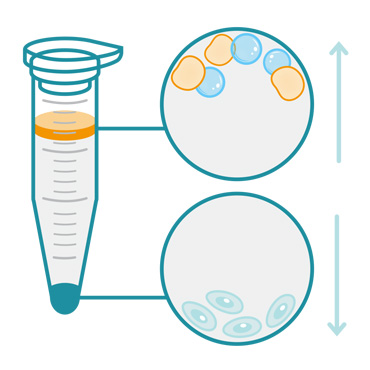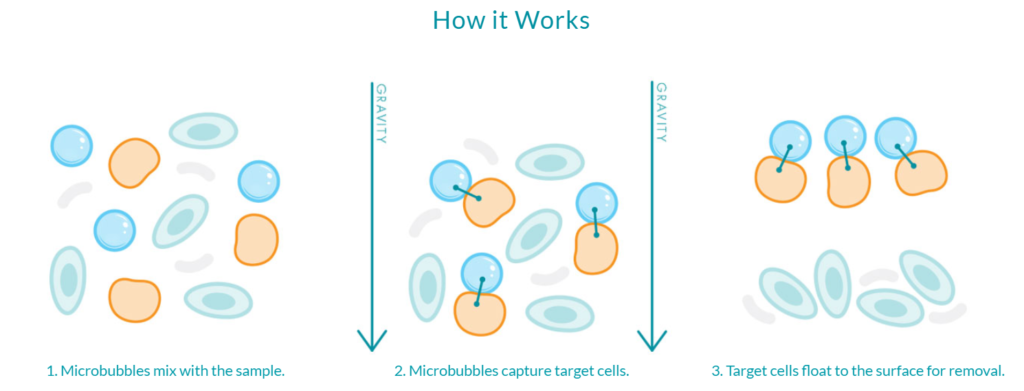What is Buoyancy Activated Cell Sorting?
What Is Buoyancy Activated Cell Sorting (BACS)?

The BACS Process
Choosing the right approach to cell separation is a crucial part of the research process. When using BACS:
1. The microbubbles are first mixed with the cell sample, where they identify and bind to the target cells and separate them from the non-target cells.
2. After binding with the target cells, the microbubbles float to the top. The target cells float with them, leaving behind the non-target cells.
3. In the final step, the microbubbles and target cells are removed from the top of the sample.
How Can BACS Be Used?
Buoyancy-Activated Cell Sorting (BACS) can be used for a wide variety of research methods. This cell isolation process allow scientists to perform a myriad of practices including:
• Isolating immune cells from peripheral blood
• Recovering cell populations from dissociated tissue
• Capturing circulating tumor cells in blood
• Conducting molecular analysis of specific cell populations
By using BACS, the cells are easily, quickly and gently separated for research purposes.
The Advantages of BACS
BACS uses microbubbles in lieu of magnets and iron beads to perform isolation, making this method gentler when compared to other methods like fluorescence-activated and magnetic cell sorting. Because the microbubble technology requires no additional equipment, it is also more cost-efficient. Because this method of cell isolation uses buoyancy, there are no limits on sample size; any size of container can be used to process the sample.
How Does BACS Differ from Other Methods of Cell Isolation?
When compared to other methods of cell isolation, BACS is the most gentle and cost-effective. Fluorescence-activated cell sorting, also known as FACS, is a highly versatile approach to cell sorting. However, FACS requires highly skilled personnel to facilitate the procedure, making it an expensive alternative. Magnetic-activated cell sorting (MACS) is another widely used form of cell sorting, but it has sample size limitations, and includes many additional costs that are not present with BACS.
Try Our Cell Sorting Microbubbles Today
If you’re looking for a simple way to improve the process of cell sorting, we’d love to show you what our microbubbles can do. Check out our wide range of microbubble products, or contact our team to learn about our partnership opportunities.



